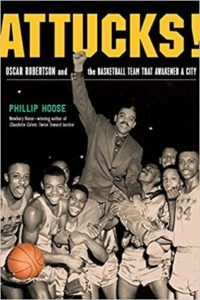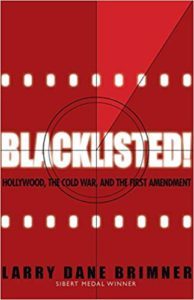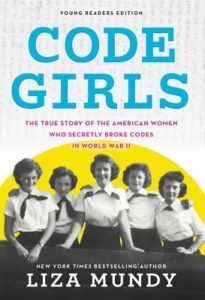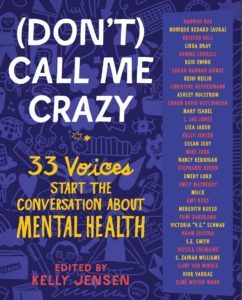YA Nonfiction To Round Out Your 2018 Reading
I promised to round out this year’s YA nonfiction offerings with the books publishing in the final quarter, and that day is here. If you’d like to take a look back at the YA nonfiction that hit shelves earlier this year, you’ll do well perusing this post and this post, which talk about the titles that are available now.
As in previous round-ups, these are books that aren’t educational publications/library bound nonfiction titles that are part of a series or intended for research purposes only. The titles absolutely include books perfect for research and reference, but these titles also serve as more recreational nonfiction reading for teens. It’s worth repeating this, too: finding every nonfiction title marketed to YA readers is challenging — with many small publishers putting these books out, in addition to the bigger and more well-known publishers, it’s impossible to find everything. So go in knowing this is incomplete, but it’s at least a good snapshot of many of the titles coming soon. Also be aware that like the rest of publishing, things tend to become more sparse after mid-November.
I’ve focused again on the vague description of “nonfiction for young readers,” as it can be tough to distinguish between middle school nonfiction and high school nonfiction. Many books fall into the 10-14 age range, if they’re not specifically geared for 14 and up, meaning that these nonfiction titles are good for either group of readers. All descriptions come from Goodreads.
Late 2018 YA Nonfiction Books
October
 Attucks!: Oscar Robertson and The Basketball Team Team That Awakened a City by Phillip Hoose
Attucks!: Oscar Robertson and The Basketball Team Team That Awakened a City by Phillip HooseBy winning the state high school basketball championship in 1955, ten teens from an Indianapolis school meant to be the centerpiece of racially segregated education in the state shattered the myth of their inferiority. Their brilliant coach had fashioned an unbeatable team from a group of boys born in the South and raised in poverty. Anchored by the astonishing Oscar Robertson, a future college and NBA star, the Crispus Attucks Tigers went down in history as the first state champions from Indianapolis and the first all-black team in U.S. history to win a racially open championship tournament—an integration they had forced with their on-court prowess.
 Blacklisted: Hollywood, The Cold War, and The First Amendment by Larry Dane Brimner
Blacklisted: Hollywood, The Cold War, and The First Amendment by Larry Dane BrimnerWorld War II is over, but tensions between the communist Soviet Union and the US are at an all-time high. In America, communist threats are seen everywhere and a committee is formed in the nation’s capital to investigate those threats. Larry Dane Brimner follows the story of 19 men–all from the film industry–who are summoned to appear before the House of Representatives Committee on Un-American Activities. All 19 believe that the committee’s investigations into their political views and personal associations are a violation of their First Amendment rights. When the first 10 of these men refuse to give the committee the simple answers it wants, they are cited for contempt of Congress and blacklisted.
 Code Girls: The True Story of the American Women Who Secretly Broke Codes in World War II by Liza Mundy
Code Girls: The True Story of the American Women Who Secretly Broke Codes in World War II by Liza MundyMore than ten thousand women served as codebreakers during World War II, recruited by the U.S. Army and Navy. While their brothers and boyfriends took up arms, these women moved to the nation’s capital to learn the top secret art of code breaking.
Through their work, the “code girls” helped save countless lives and were vital in ending the war. But due to the top secret nature of their accomplishments, these women have never been able to talk about their story–until now.
 (Don’t) Call Me Crazy: 33 Voices Start The Conversation About Mental Health edited by Kelly Jensen
(Don’t) Call Me Crazy: 33 Voices Start The Conversation About Mental Health edited by Kelly JensenWho’s Crazy?
What does it mean to be crazy? Is using the word crazyoffensive? What happens when such a label gets attached to your everyday experiences?
In order to understand mental health, we need to talk openly about it. Because there’s no single definition of crazy, there’s no single experience that embodies it, and the word itself means different things—wild? extreme? disturbed? passionate?—to different people.
(Don’t) Call Me Crazy is a conversation starter and guide to better understanding how our mental health affects us every day. Thirty-three writers, athletes, and artists offer essays, lists, comics, and illustrations that explore their personal experiences with mental illness, how we do and do not talk about mental health, help for better understanding how every person’s brain is wired differently, and what, exactly, might make someone crazy.
If you’ve ever struggled with your mental health, or know someone who has, come on in, turn the pages, and let’s get talking.
Dear Heartbreak: YA Authors and Teens on the Dark Side of Love by Heather Demetrios
This is a book about the dark side of love: the way it kicks your ass, tears out your heart, and then forces you to eat it, bite by bloody bite. If you’ve felt this way, you’re not alone…
In this powerful collection, YA authors answer real letters from teens all over the world about the dark side of love: dating violence, break-ups, cheating, betrayals, and loneliness. This book contains a no-holds-barred, raw outpouring of the wisdom these authors have culled from mining their own hearts for the fiction they write. Their responses are autobiographical, unflinching, and filled with love and hope for the anonymous teen letter writers.




